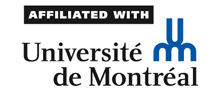by Marc Guinjoan, Associate Professor, Pompeu Fabra University
http://elpatidescobert.cat/
There is a lot to decide. Catalans are going to the polls next Sunday 25th November in a contest that has attracted much international attention. Last month, the Catalan Prime Minister, Mr. Artur Mas –from the Catalan nationalist and centre-right Convergència i Unió (CiU)– called early elections, only two years after the beginning of his mandate. On the 11th September 2012 one and a half million people marched in Barcelona for Catalan independence, in the biggest demonstration ever held in the region. Catalan nationalism has historically based its claim for more self-government (or secession) on identity grounds and has been asking for the right to self-determination. However, the vertiginous growth in support for secession experienced in recent times has to do with other considerations as well, mainly economic. According to data from the Spanish government, Catalonia’s fiscal imbalance represents between 6.5% and 8% of the Catalan GDP.
According to a series of surveys carried out by the Catalan Centre for Opinion Studies (CEO) since 2006 support for a Catalan independent state has increased from 13% to 44% (see Figure 1 below). Additionally,
Around 57% of Catalans answer Yes when asked “If tomorrow a referendum to decide the independence of Catalonia was held, what would you vote”.
Figure 1: Support for different territorial preferences in Catalonia, 2006 to 2012
However, the Spanish constitution does not allow the secession of any Spanish territory or the right to self-determination. Nonetheless, in response to the massive demonstration held in Barcelona, and after the Spanish Prime Minister –Mariano Rajoy, from the conservative Popular Party– refused to negotiate a better fiscal treatment for Catalonia,
The Catalan Prime Minister called elections and announced his intention to hold a referendum on Catalan secession during the upcoming 4-years mandate.
Although these elections are seen as crucial, there is almost no uncertainty about the final electoral results. In a 135 seat parliament, the incumbent party, CiU, will obtain between 62 and 66 seats (according to most surveys), still far from the majority. On the other side, the main opposition party is the PSC, the Catalan branch of the Spanish socialist party PSOE; the party is expected to have between 17 and 20 deputies (in 2006 the PSC had 46 seats). The conservatives and pro-unity party PP, as well as the leftist and pro-secession ERC, may surpass the PSC: each of these parties should gain between 17 and 19 seats. The leftist and pro-referendum ICV may obtain between 10 and 14 deputies, and the pro-centralisation unionist C’s should do much better, going from the current 3 seats to 7 or 8 deputies. Finally, the far-left and secessionist CUP may enter into the Parliament with 0 to 4 deputies (see Figure 2 below).
Figure 2: Electoral results in 2010 Catalan elections and expected electoral performance in 2012
It is clear that the parties in favour of secession will obtain a majority of the seats (around 80 seats),
and those in favour of the right of Catalonia to decide its own future could even hold two-thirds of the seats in Parliament. These are exciting times. The MEDW survey will allow us to make sense of this crucial election period and to better understand what is going on in Catalan society.
